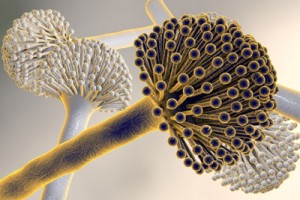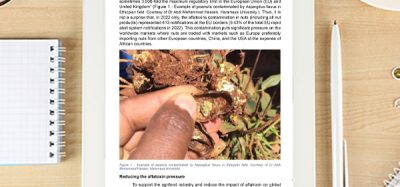Experts use wet summer to improve mycotoxin risk assessments
- Like
- Digg
- Del
- Tumblr
- VKontakte
- Buffer
- Love This
- Odnoklassniki
- Meneame
- Blogger
- Amazon
- Yahoo Mail
- Gmail
- AOL
- Newsvine
- HackerNews
- Evernote
- MySpace
- Mail.ru
- Viadeo
- Line
- Comments
- Yummly
- SMS
- Viber
- Telegram
- Subscribe
- Skype
- Facebook Messenger
- Kakao
- LiveJournal
- Yammer
- Edgar
- Fintel
- Mix
- Instapaper
- Copy Link
Posted: 24 August 2015 | Victoria White | No comments yet
A new project is taking advantage of the inclement UK summer weather to gain a better understanding of mycotoxins and improve mycotoxin risk assessments


The UK’s wet summer has adversely affected crop growing in farms up and down the country, but a new project is taking advantage of the inclement weather to reinforce methods of ensuring food safety.


The project, funded by the Agriculture and Horticulture Development Board (AHDB) and being led by the Agriculture Development Advisory Service (ADAS), is focusing on fungal toxins in cereal crops, particularly wheat, and aims to arm the food industry with new tools to more efficiently test crops and confirm they are safe to eat.
The toxins, known as mycotoxins, are produced by moulds which develop on cereals in the field, especially when it is wet and moderately warm during flowering. They can have a devastating impact on the human body, including kidney damage, reproductive disorders and cancer.
Mycotoxin Risk Assessment data will be matched with Met Office rainfall data
The AHDB already has a stringent testing regime in place, including the Mycotoxin Risk Assessment which has to be completed by farmers after the harvest and accompanies the grain consignments when they leave the farm.
This data, which includes information about how the crop was cultivated and when it was harvested, will now be matched for the first time with rainfall data supplied by the Met Office as part of a real time monitoring project. This will help in significantly increasing the accuracy of the Risk Assessment.
The project aims to give the UK farming industry and parties within the wheat supply chain an early indication of infection risk. One of the benefits of this being more effective use of testing through the supply chain. A pilot was run last year and is set to run for three years, from May for a six week period.
Claire Milligan a Product Manager of R-Biopharm Rhône Ltd, selling test kits like Rida®Quick Don and Ridascreen®Fast Don which can be used to detect the presence of mycotoxins, said, “Providing timely information on national and regional risks enables grain cooperatives, merchants and primary processors to carry out grain sampling and testing protocols appropriate to the risk levels saving time and costs without compromising quality.”





